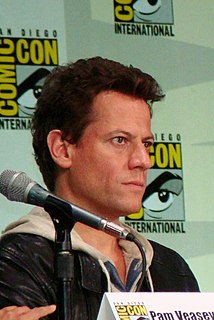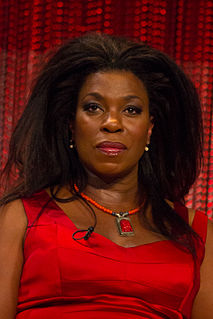A Quote by Morgan Freeman
I don't have to do anything. The character is shaped on the page.
Related Quotes
It's really an organic sort of process. You start off with the character on the page. You fall in love with that character and you have to represent that character well and I think it's just an evolution there. Using the accent and speaking the lines with the accent in fact opens the door to who the character really is.
In a 22-page comic, figuring an average of four to five panels a page and a couple of full-page shots, a writer has maybe a hundred panels at most to tell a story, so every panel he wastes conveying a.) something I already know, b.) something that's a cute gag but does nothing to reveal plot or character, or c.) something I don't need to know is a demonstration of lousy craft.
Sadly, I wish I had been able to play ["Miner's Prayer"] for [grandfather]. Yeah, I'll never escape the influence of him in my life. And my - his wife, my grandmother, Earlene Tibbs - those experiences with them shaped me musically probably more profoundly than anything else in my life and shaped me as a writer.
Yes, the fear of its blankness. At the same time, I kind of loved it. Mallarmé was trying to make the page a blank page. But if you're going to make the page a blank page, it's not just the absence of something, it has to become something else. It has to be material, it has to be this thing. I wanted to turn a page into a thing.



































